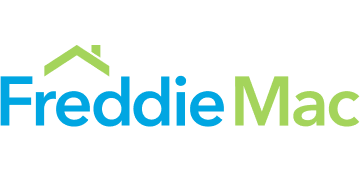In 2016, Greater Manchester became the first city region in the United Kingdom to take full control of its combined health and social care budgets – a sum of more than £6 billion. Greater Manchester Health and Social Care Partnership is the body made up of the National Health Service (NHS) organizations and councils in the city region that is overseeing the work. It means that, for the first time, local leaders and NHS clinicians are working together to tailor budgets and priorities to improve the health and well-being of 2.8 million residents. The partnership is working in consultation with local people to tackle some of the inequalities and poor health outcomes that blight the region.
Time and time again, we hear that healthcare is an area where technology can help deliver better care and lower costs. And I don’t mean with more sophisticated machines – we mean that understanding large-scale patterns in how healthcare is delivered and received could reveal the need for important and meaningful changes.
Graham Beales is one of the people testing that proposition. Beales is head of business intelligence at the Greater Manchester Health and Social Care Partnership.
We asked Graham about the scope of his work and was impressed by the answer. “The services provided by the NHS reach all the way from mental health services across to critical care, cancer services, community-based care, and then social,” he told me. “We reach out to specialists in all sorts of support and preventative services.”
Graham went on: “I suppose most of the healthcare industry is interested in the quality of their customer service, or the turnover that they make, or the profit. In our instance, we’re looking at outcomes for people’s lives, and we’ve started to move towards a population health model, which means that we’re looking at the whole person, as opposed to a patient in a queue over here, and a patient in a queue over there.”
To that end, data has real power, Graham says. But putting it to work takes effort. When he joined the Manchester partnership, one of his first steps was to deploy a Tableau platform to help aggregate data and make it meaningful. Moreover, in the interest of transparency, the Tableau data is shared with all organizations within the partnership. “We don’t hide things behind different siloes,” Graham said. “We’re trying to build a level of trust and integrity in what we’re doing.”
Graham also is using an AI model built on DataRobot technology that helps the partnership use data proactively. In one case, the partnership gathered patient data (with identities protected) about their health and any chronic or acute conditions and built a model that could predict the time they were likely to spend in an emergency room. Along with the ability to select particular hospitals for emergency care based on their present patient load, the partnership can reach its target of receiving medical assistance within four hours of their arrival.
The future offers even more potential, with possibilities such as an AI-driven scanner assessing things such as skin conditions, rapidly moving through a series of patient scans and flagging those that require the attention of a human physician. Or “smart” pedometers could let the system know how many steps an individual is taking each day. If that number decreases, it might be worth a call from a physician to see if medical help is needed before a condition becomes more serious.
“This is a fascinating space, and it’s moving quickly,” Graham told me. “The technological advances we have now, our compute power and our ability to store and process data, was inconceivable to us five years ago. I think that five years from now, we’ll be doing things that none of us can now even imagine.
Podcast
Graham Beales: Intelligently Transforming Healthcare
Watch Now
About the author
DataRobot
Value-Driven AI
DataRobot is the leader in Value-Driven AI – a unique and collaborative approach to AI that combines our open AI platform, deep AI expertise and broad use-case implementation to improve how customers run, grow and optimize their business. The DataRobot AI Platform is the only complete AI lifecycle platform that interoperates with your existing investments in data, applications and business processes, and can be deployed on-prem or in any cloud environment. DataRobot and our partners have a decade of world-class AI expertise collaborating with AI teams (data scientists, business and IT), removing common blockers and developing best practices to successfully navigate projects that result in faster time to value, increased revenue and reduced costs. DataRobot customers include 40% of the Fortune 50, 8 of top 10 US banks, 7 of the top 10 pharmaceutical companies, 7 of the top 10 telcos, 5 of top 10 global manufacturers.







